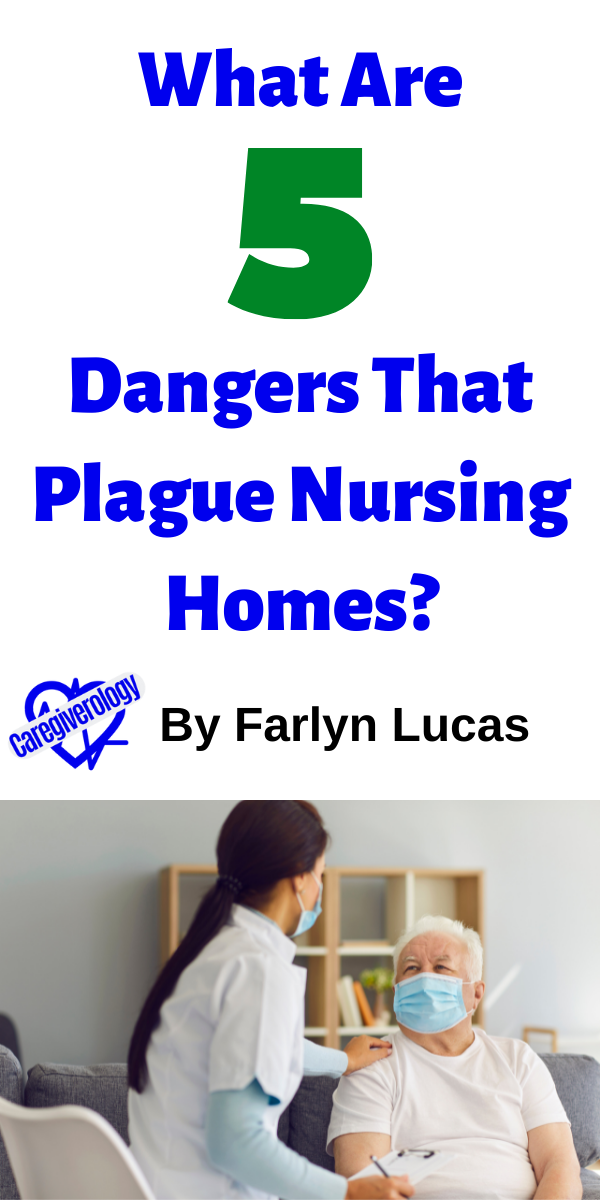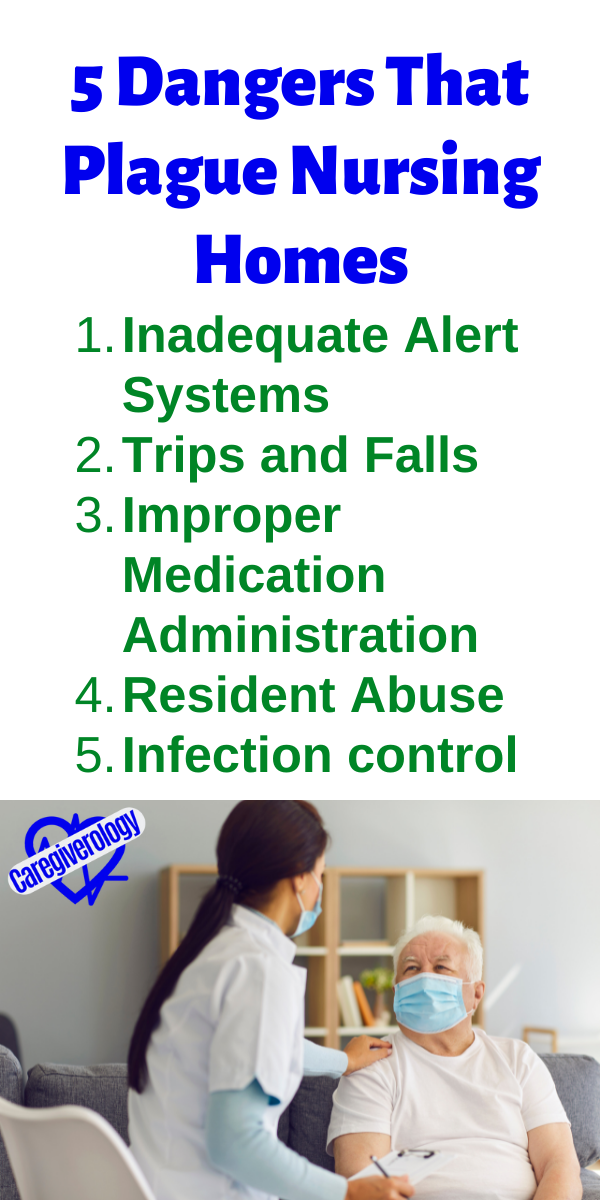What Are 5 Dangers That Plague Nursing Homes?
First of all, I must give significant credit to the ever-improving living standards in society today, from advancements in medical sciences, to improving treatment modalities for the elderly. These factors have led to a growing population of people who live well above their 60s.
Introduction
There are more aged people today than there have ever been in human history. And with this rising population comes the increased need for specialized care. As a direct consequence, there are many home care service provisions being made available all over the country.
A recent study showed that there are at least 1.6 million residents in nursing facilities in need of care. With that number being cared for by professionals and the residents having limited abilities to carry out everyday functions by themselves, there lies a number of potential dangers. This article explores some of the many dangers that could arise in a nursing facility and what can be done about them.
1. Inadequate Alert Systems
Aged individuals are often not very agile or loud enough when calling for help in times of danger. They are also prone to domestic accidents as well as an aggravation of a disease condition they already suffer from. In situations like these, time is usually of the essence.
All beds and bathrooms should be equipped with alert systems that can quickly call the attention of the nurses on duty to the situation, thereby shortening the response time for life-saving interventions. Some may even have medical devices around their necks or wrists.
2. Trips and Falls
Every 15 seconds, an elderly person is admitted to the emergency room because of a fall or a trip. Falls are one of the most common causes of injuries in the elderly. This is usually because of poor movement coordination and poor vision brought upon by either the aging process itself or the presence of age-related disease.
Nursing homes are best designed to prevent or at least minimize the chances of falls or trips occurring. The medical facility must have adequate lighting of rooms, halls, and corridors. The building design should also limit the number of steps and stairways that elderly people will have to climb.
Also, rather than being smoothly tiled, the floors should have corrugations fitted for better traction, and in particular, handrails and grab bars should be installed in the bathrooms. These are just a few of the measures that can help prevent these trips and falls from occurring.
3. Improper Medication Administration
Many cases of medical negligence have been reported from nursing homes. Many of them are related to a mistaken drug prescription, drug overdose, or non-adherence to a prescribed medication.
Because many of these residents depend on their caregivers to remind them and sometimes monitor the administration of these medications, a failure of the healthcare provider to do so could severely affect the health outcome of the aged resident. This could set off complications, relapses, or even death in some cases.
It is crucial to research and find out whether or not the nursing home is adequately staffed with professionals to sufficiently attend to the needs of the number of residents they have. A simple google search will provide you with more information and reviews to make a more informed decision. If you find one that seems to be a good fit, an in person visit would be a great next step.
4. Resident Abuse
Elderly residents of nursing homes are usually very vulnerable and are at the mercy of their caregivers. In some cases, as has been occasionally observed, caregivers could take advantage of this vulnerability to inflict pain, psychological, or sexual abuse on their elderly dependents.
As a relative of an elderly person in a nursing home, it is important to look out for the telltale signs of abuse. Unusual marks, cuts, bruises, skin discoloration, dehydration, malnourishment, and sexually transmitted infections should all be considered red flags. Likewise, their complaints should not always be regarded as simply delusional.
5. Infection control
Due to poor sanitary conditions and often challenging waste disposal mechanisms, people in health facilities are more prone to a number of infections. When these infections come from a health care facility, they are referred to as nosocomial infections.
Studies show that two out of three patients require at least one course of antibiotics regularly. This frequency of antibiotic use in such facilities can lead to the development of resistant strains of bacteria. When such resistant strains are passed on to other people, it becomes quite difficult to treat. Poor methods of disposal of bodily fluids and other waste products can also be a point of further spread.
Conclusion
All of these factors represent some of the dangers that could be encountered in nursing homes. It is important to find out if that accident, injury, or health complication suffered in a care home was a result of medical malpractice or negligence.
Approximately 225,000 people die from medical malpractice each year and surprisingly, only 2% of these file a malpractice lawsuit. If you or someone you know have been a victim of this, the best thing to do is to engage in the services of a malpractice lawyer to help you get proper compensation for any injuries that have arisen from medical neglect.
All of this data isn't meant to discredit all of the well functioning nursing homes that aide countless residents around the clock on a daily basis. But it is meant to encourage caution when choosing a nursing home. It is truly a life altering decision and should be treated with a considerable amount of care.
Thank you Farlyn Lucas for contributing this article.
Guest Articles Written for Caregiverology
From What Are 5 Dangers That Plague Nursing Homes? to Home
Recent Articles
-
Common Truck Crash Injuries and Legal Remedies - Caregiverology
Jul 19, 25 10:49 AM
Known for its sun-drenched beaches, vibrant arts scene, and bustling maritime industry, Fort Lauderdale is a city that sees heavy traffic both on its roads and at its busy port. Unfortunately, with th… -
Why Expert Legal Help Matters After Serious Injury - Caregiverology
Jul 19, 25 10:35 AM
In Houston, over 67,600 car crashes occurred in 2023, resulting in 290 fatalities and 1,612 serious injuries. That’s roughly 185 accidents every day. -
How Life Care Planners Support Injury Recovery - Caregiverology
Jul 19, 25 10:18 AM
In Los Angeles, life care planners play a vital role in supporting injury recovery, especially for individuals facing catastrophic injuries such as traumatic brain injuries or spinal cord damage.






New! Comments
Have something to say about what you just read? Leave a comment in the box below.